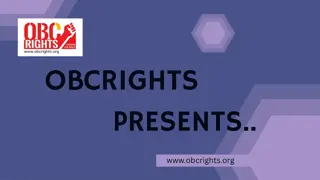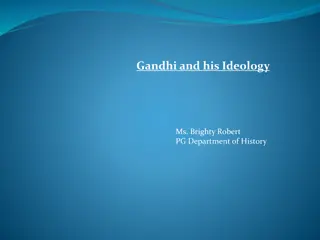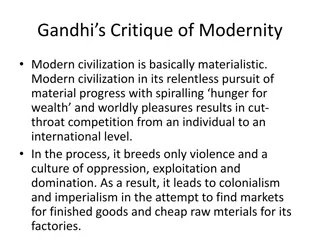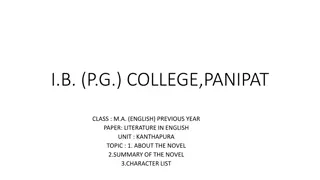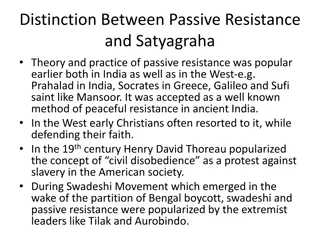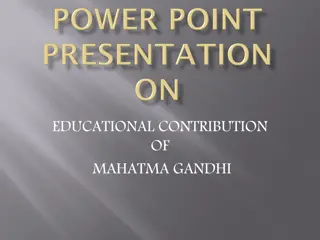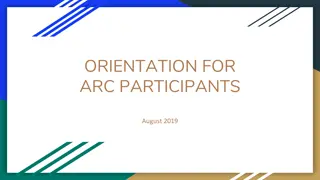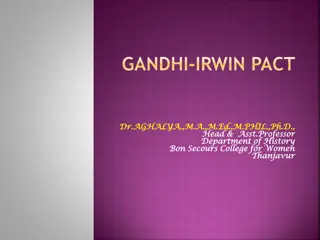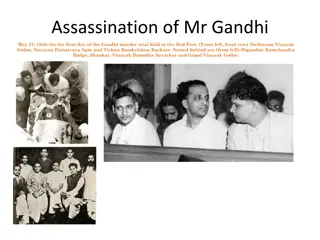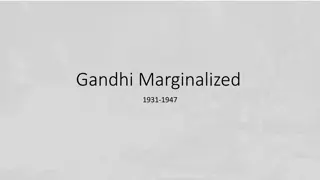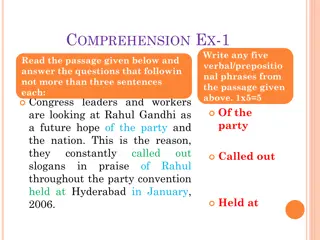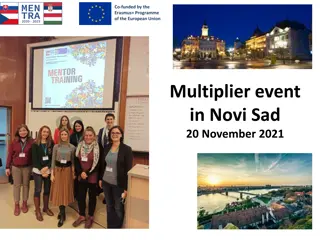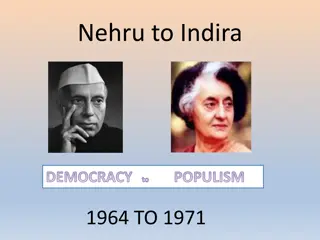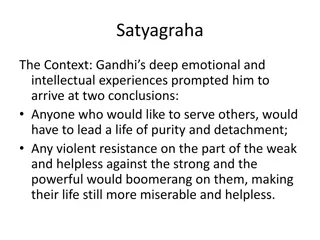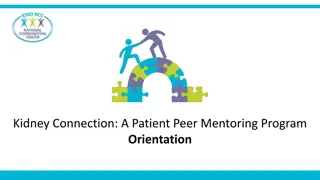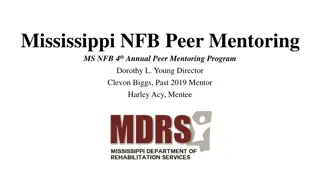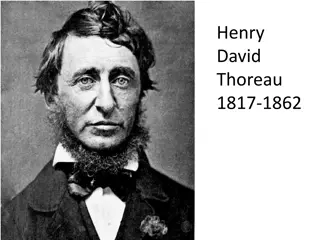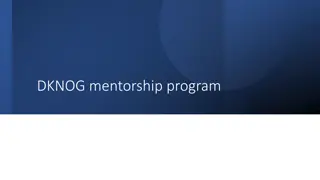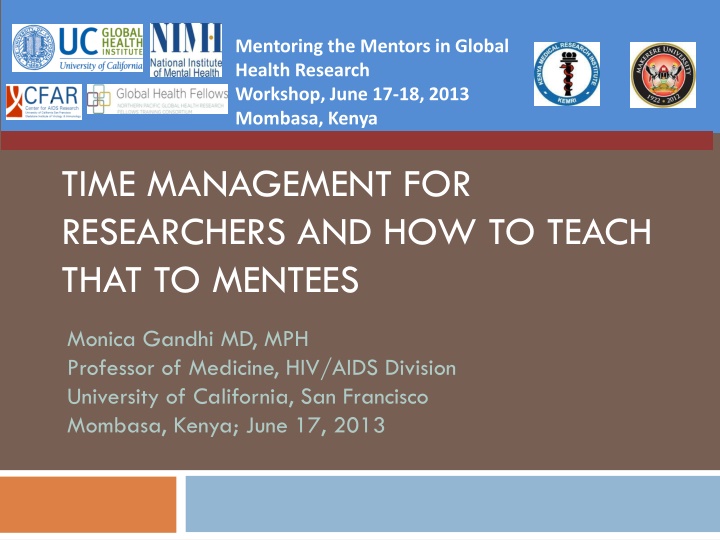
Effective Time Management Principles for Early Career Faculty in Global Health Research
Learn valuable insights on time management for researchers in the field of global health. Discover the importance of prioritizing tasks, setting boundaries, and honing essential skills to achieve goals effectively. Gain valuable advice on mentoring mentees in time management practices.
Download Presentation

Please find below an Image/Link to download the presentation.
The content on the website is provided AS IS for your information and personal use only. It may not be sold, licensed, or shared on other websites without obtaining consent from the author. If you encounter any issues during the download, it is possible that the publisher has removed the file from their server.
You are allowed to download the files provided on this website for personal or commercial use, subject to the condition that they are used lawfully. All files are the property of their respective owners.
The content on the website is provided AS IS for your information and personal use only. It may not be sold, licensed, or shared on other websites without obtaining consent from the author.
E N D
Presentation Transcript
http://escholarship.ucop.edu/brand/ucghi/ucghi-logo-white-background.pnghttp://escholarship.ucop.edu/brand/ucghi/ucghi-logo-white-background.png Mentoring the Mentors in Global Health Research Workshop, June 17-18, 2013 Mombasa, Kenya TIME MANAGEMENT FOR RESEARCHERS AND HOW TO TEACH THAT TO MENTEES Monica Gandhi MD, MPH Professor of Medicine, HIV/AIDS Division University of California, San Francisco Mombasa, Kenya; June 17, 2013
Definition of the problem Too much to do described as single biggest stress by early career faculty1 Of 21 workplace "stresses , 40% were time-related Nearly 80% felt stressed by both lack of work-life balance and "too many time pressure Nearly 70% already concerned about burnout Specific concerns Too much paperwork, Not enough time for research and other academic pursuits Lack of control over how time was spent. Bellini LM. Stresses and workplace resources for academic junior faculty: track and gender comparisons. Acad Med 2001
Principles of the time management problem in early career faculty New problem: Medical training very structured and faculty position may be 1st time mentee managing their own time Hard to mentor: Difficult to rely on one s own experience when coaching mentees. You may be naturally organized , mentee may not Takes time to gain time: Learning time management skills from workshop, book may help but takes time and mentor should not expect rapid change Some people don t want to change: Chaos may be way of life for some, and they can t change Simply telling someone to be more efficient does not work Susan Johnson MD, U. of Iowa.
Basic principles to convey to your mentees Our supply of time cannot be expanded, We do not have time to do everything in which we are interested Thus, how we choose to spend our time is critical to successfully accomplishing our goals. http://img.timeinc.net/time/2007/eating/makes_eat/makes_eat_time.jpg
http://t1.gstatic.com/images?q=tbn:ANd9GcTHa4sJRcydE1spSUAFxLR0p9OLY5CCRXK11TZ8HHolonpVV_Swhttp://t1.gstatic.com/images?q=tbn:ANd9GcTHa4sJRcydE1spSUAFxLR0p9OLY5CCRXK11TZ8HHolonpVV_Sw First step in time management saying no Early career faculty often get into trap of saying yes to everything Counsel on saying no to Chapter writing (peer review articles are a better use of time) Joining a committee (that provides no direct career benefit) Devoting excessive extra time to patient care activities Collaborating on someone else's grant (when the research is not central to the junior person's focus).
http://t1.gstatic.com/images?q=tbn:ANd9GcTHa4sJRcydE1spSUAFxLR0p9OLY5CCRXK11TZ8HHolonpVV_Swhttp://t1.gstatic.com/images?q=tbn:ANd9GcTHa4sJRcydE1spSUAFxLR0p9OLY5CCRXK11TZ8HHolonpVV_Sw How to help mentee say no Early career faculty find it difficult to say no to senior colleagues, don t know what is in their best interest, fearful of missing opportunities Be a sounding board to offer advice for each new activity Provide a cover story My Division Chief won t let me do this Review mentee s activities twice-yearly and help take things off the plate
Help create a work environment that promotes both productivity and well being Current academic structure demands Constant email contact, no vacations, working long hours, little sleep Myth: The best way to get more work done is to work longer hours. No single myth is more destructive to employers and employees than this one. The reason is that we're not designed to operate like computers at high speeds, continuously, for long periods of time. Instead, human beings are designed to pulse intermittently between spending and renewing energy. Great performers and enlightened leaders recognize that it's not the number of hours people work that determines the value they create, but rather the energy they bring to whatever hours they work." Schwartz, Tony. HBR Blog Network; Four Destructive Myths Most Companies Still Live By
How to control long hours in your group Be explicit that faculty members will be evaluated based on the outcomes, not on "face time." Take vacations, nights off, weekends out of the communication loop yourself, and encourage others to do the same. Talk with your colleagues about what you do to relax and relieve stress. Long hours are sometimes the result of a workplace that is so filled with distractions that work requiring concentration - like writing - can't be done during normal hours. Let your group know that it is OK to close the door or go off site to do intensive work.
Time sink #1: Meetings Make sure the meeting is needed, Invite only the people who need to be there, Circulate an agenda in advance, Start and end on time, Stay on topic, Create explicit next steps at the end, Make sure it is clear who is responsible for each step or task, and Follow up to be sure these are done.
Time sink #2: Getting email under control 1. Turn off the notification announcing each email Distracts from task you are performing Try to check email 3 times a day beginning, middle, end. If need to more frequently, set timer to check every hour 2. Put your contact information in automatic signature Encourage rapid phone calls to avoid confusing email chains 3. Keep your inbox small Deal with and delete Create 3 folders: Waiting for (waiting for reply), Projects and Reference
http://www.siena.edu/uploadedimages/home/news/email-icon.jpg Getting email under control - continued Short emails, convey factual information Do not convey emotion or discuss political issues (Traceable and best done by phone, person) Make subject line informative (not hi , but Location of journal club changed to library ) Think carefully do you need to cc that person?
http://www.siena.edu/uploadedimages/home/news/email-icon.jpg Getting email under control - continued 1. Complete at least one important task each day before you look at e-mail (finish the abstract) 2. Set a limit for the amount time you will spend on e- mail at a session 10 minutes, 30 minutes, 2 hours. Do not get caught up in a never-ending session 3. Work through your messages one at a time, starting with either the most recent or the oldest and NO SKIPPING!
http://www.siena.edu/uploadedimages/home/news/email-icon.jpg Working through email For each message, do one of the following: 1) delete 2) file (reference or a project file) 3) respond / do the requested task, or 4) defer to a later time (try to minimize deferred)
Questions? http://todaysfreshmanna.files.wordpress.com/2012/12/mentor.jpg?w=400h=400 http://t1.gstatic.com/images?q=tbn:ANd9GcQx_KtjWouzj7FXzFPJiJ4wEXmz21x8XnTJWha-D1dB-_3gthJ1

